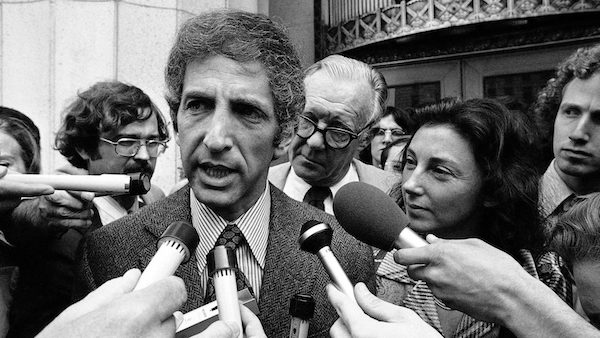Daniel Ellsberg, the whistleblower who made history in 1971 by releasing the Pentagon Papers, a top-secret study of the U.S. military’s invasion of Vietnam, passed away peacefully in his home in California on June 16.
The Pentagon Papers, a report prepared by the U.S. government, revealed that the U.S. state had lied to its people about the scope of the Vietnam War. The U.S. had not bombed and invaded Vietnam to save the Vietnamese from communism, the papers revealed.
The New York Times was the first major newspaper to publish the papers, but others of its standing followed suit shortly after. The massive revelations found in the papers helped bring about an end to the war.
Neal Sheehan, the New York Times journalist who led the efforts to process and publish the papers on June 13, 1971, wrote that the government’s goal in the war was to maintain “the power, influence and prestige of the United States… irrespective of conditions in Vietnam.”
Ellsberg is remembered fondly by many in the U.S. anti-war movement. According to his son, Robert Ellsberg, his father had told him shortly before his death,
if he were to have a gravestone, that he would say: ‘He became a part of the anti-Vietnam and anti-nuclear movement.’
“Dan exposed the lies about the Vietnam War and paved the way for others who blew the whistle on the drone program, the CIA, and more,” said U.S. anti-war organization CODEPINK in a statement following his death.
He represents a strong resistance against war and military propaganda that will poke at the U.S. military industrial complex for as long as it exists.
Ellsberg was charged under the Espionage Act of 1917, the same law being used to persecute journalist Julian Assange for revealing U.S. war crimes in Iraq and Afghanistan. Ellsberg’s charges carried a maximum sentence of 115 years. All charges against him were dropped in 1973, just two years after he released the papers. In his final years, Ellsberg continued to participate in the anti-war movement, fighting for the release of Assange. Ellsberg testified in favor of Assange during his 2020 trial, stating,
Julian Assange could not get a remotely fair trial under those charges in the United States.

